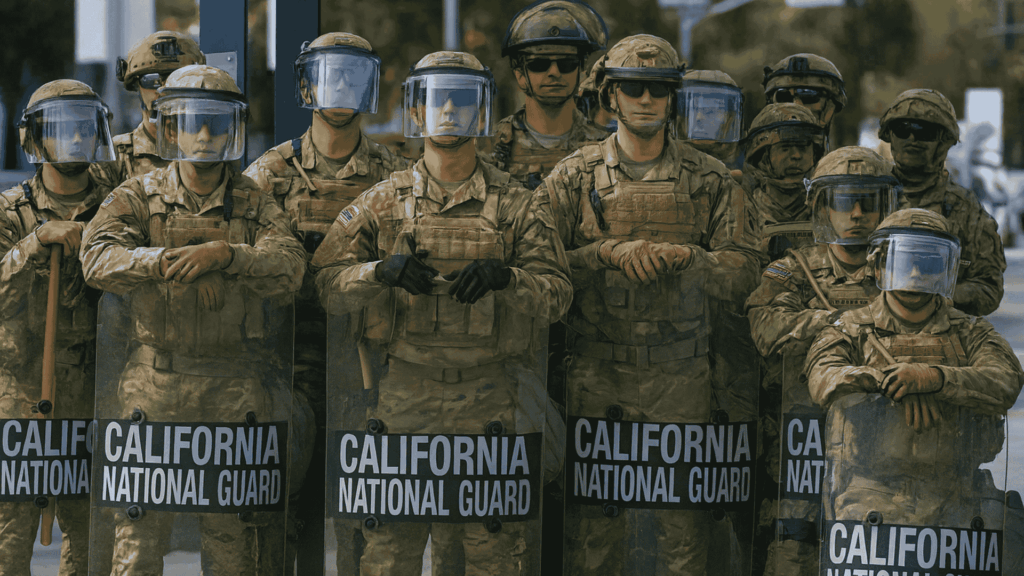San Francisco, September 2, 2025 — A federal court has delivered a sharp rebuke to former President Donald Trump’s use of the military during protests in Los Angeles. Judge Charles R. Breyer, a longtime federal district judge and the brother of retired Supreme Court Justice Stephen Breyer, ruled that Trump’s decision to send in both the National Guard and U.S. Marines violated the Posse Comitatus Act, a statute that restricts the role of the armed forces in domestic law enforcement.
Judge Breyer’s Findings
In a 52-page opinion, Judge Breyer concluded that the administration had crossed the line from protecting federal buildings into policing city streets. Evidence presented during a three-day bench trial showed troops setting up barricades, directing traffic, and performing crowd control—roles typically reserved for local law enforcement, not combat-trained soldiers.
Breyer rejected the administration’s argument that protests amounted to a “rebellion” requiring military intervention. He went further, warning that Trump’s broader threats to deploy troops to other cities pointed toward something even more dangerous: the creation of “a national police force with the President as its chief.”
That single phrase underscored what Breyer saw as the constitutional danger—an executive willing to treat the military as his personal domestic enforcement arm.
California’s Challenge
The state of California, led by Governor Gavin Newsom and Attorney General Rob Bonta, filed suit shortly after Trump federalized roughly 4,000 National Guard members and brought in about 700 Marines. They argued the deployment ignored both the Constitution and federal law.
Breyer’s ruling stops the government from using soldiers in crowd control, arrests, or blockades inside California. However, it does not require the troops to leave immediately. His order takes effect September 12, giving the Trump administration time to appeal.
What Comes Next
The administration is almost certain to appeal to the Ninth Circuit Court of Appeals, which has already issued temporary stays in the case. Many observers expect the dispute, formally titled Newsom v. Trump, to eventually reach the U.S. Supreme Court.
If it does, the stakes will be high: the Court would have to decide whether to reaffirm long-standing limits on domestic military use, or expand presidential power in a way not seen since Reconstruction.
National Implications
While Judge Breyer’s injunction applies only to California, the ruling sends a broader signal. It reasserts that the Posse Comitatus Act, first enacted in 1878 to prevent federal troops from enforcing racist laws in the post-Civil War South, remains a critical safeguard against military overreach today.
Legal scholars note that if upheld on appeal, the decision could provide a blueprint for other states to resist federal attempts to use soldiers in civilian policing roles.
Reaction to the Decision
Governor Newsom welcomed the ruling, saying it confirmed that “no president is above the law.” Attorney General Bonta added that the case was about preserving a clear boundary between civilian policing and military force.
The White House dismissed the decision and criticized Breyer as a “rogue judge,” vowing to continue defending what it described as efforts to protect cities from unrest.

